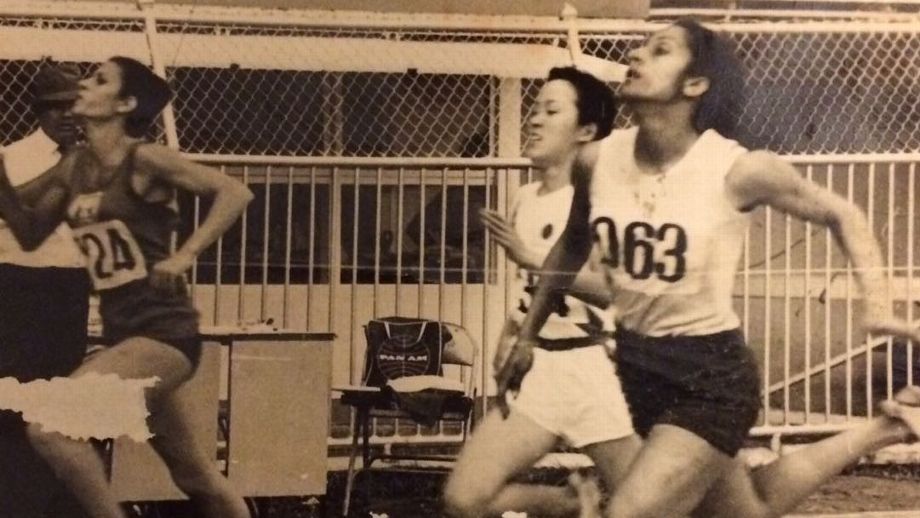Athletics
Forgotten Women | 5 decades before Hima Das, an Indian woman brought the country gold in Asiad

India's teen sensation Hima Das had clinched the silver medal in the final of the 400m race at the 2018 Asian Games in Jakarta. Hima continued her good show and herself broke the National Record, after setting the National Record in the previous round, took a time of 50.79 in the final. While Hima's achievements make her a household name in Indian sports today, five decades ago, another Indian quarter-miler had set the tone for the country's success among sportswomen.
It was Punjab’s quarter-miler Kamaljeet Sandhu who broke the glass ceiling for women sportspersons by becoming the first Indian woman athlete to win a gold at the Asian Games in Bangkok 1970. Back in that era, no woman athlete from India had won a gold medal. Kamaljeet ran the distance in 57.3 seconds. The athlete had held the national record in 400 metres and 200 metres for almost a decade until it was broken by Rita Sen of Calcutta and later by P.T. Usha.
Sandhu, who was awarded the Padmashree in 1971, was a finalist in the 400-m race in the World University Games at Turin, Italy, in 1971. She was also a part of the national team in the 1972 Munich Olympics, where she exited in the heats. The former-ace sprinter underwent training in Los Angeles that year and finally hung up her boots in 1973.
 Kamaljeet Kaur Sandhu on her way to win the gold at the 1970 Asian Games (Source: Kamaljeet Kaur Sandhu/ESPN)
Kamaljeet Kaur Sandhu on her way to win the gold at the 1970 Asian Games (Source: Kamaljeet Kaur Sandhu/ESPN)
Born a year after India's independence in 1948, grew up at a time when the society still imposed that women would be timid and not much sporty. However, her father, Mohinder Singh Kora, was the biggest support in her family. He had been an outstanding hockey player in his college days and had even played with the Olympian Balbir Singh. Sandhu was the second of four sisters and her dad always encouraged her to participate in sports.
After she showed her talent in her school in Gwalior, she was admitted to Lakshmibai National Institute of Physical Education and took part in every sport she could.
Her performances slowly started drawing attention and she was called up by Panjab University in Chandigarh in their physical education department. A classmate of Kiran Bedi, Sandhu did not pick up any specialization for herself but ran her first 400m race directly in the 1967 National Championships. It happened just because her coach told her to. When the gun went off, she shot past everyone. Everything was great until 350m -- when she saw stars and collapsed, because I didn't know that you can't just sprint a 400m.
Even though Sandhu had lost, everyone was very impressed with her speed. Raja Karni Singh, in turn, asked an Asian Games athlete, Ajmer Singh, to start training her. Ajmer Singh had won a gold at the [1966] Asian Games but was now looking for someone to coach. It was difficult for Ajmer Singh too because he had never trained a woman athlete. Even the National Institute of Sports (NIS) that had been set up [in Patiala] in 1963 didn't have any coach for women and no one really knew how to go about it.
Sandhu was called to a short camp at the NIS in the summer of 1969 and they had a couple of international exposure tournaments before the Asian Games and she won both of them. But even at the Asian Games in Bangkok, no one really expected her to win. In the final, she was running along with Taiwan's Chi Cheng, who had won a bronze at the 1968 Olympics. During the race, Sandhu was in the lead by the 320m mark. She saw that Chi had stumbled and fallen. Even though Chi did not finish, the race was really close. Her other competitor, Aviva [Balas] from Israel, had excellent stamina because she was a strong 1500m runner. They both had identical times [57.3 seconds] but Sandhu got there just in time.
Her performance made strong statement in India. She also received a telegram from the then prime minister Indira Gandhi. After the Asian Games, Sandhu was expected to prepare for the 1972 Olympics. To improve, she trained in the USA, where she also won some races. The [Indian athletics] federation was upset because they wanted her to take part in the national- and state-level competitions. She found out they hadn't even entered her name for the Olympics and told her to represent the USA since she was training there. Sandhu was finally included at the last minute for the Olympics. The psychologically pressurised Sandhu could keep the expectation mark and had to bid adieu to the Olympics in the heats.
A year later, Sandhu called it quits. However, she was one of the first sportswomen in India to have shone internationally and inspired a generation to take up sports.
Also read: We might have to start again from the scratch — Anju Bobby George

